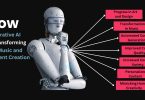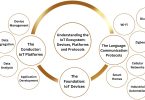Quantum computing is an vicinity of computer science that makes use of the concepts of quantum theory. Quantum idea explains the conduct of power and material on the atomic and subatomic levels. Quantum computing makes use of subatomic particles, such as electrons or photons. Quantum bits, or qubits, permit these particles to exist in greater than one country (i.e., 1 and 0) at the equal time. A quantum computer does now not use bits to keep information. Instead, it makes use of some thing known as qubits. Each qubit can now not solely be set to 1 or 0, however it can additionally be set to 1 and zero. Here, we explain how does quantum computing work?
KEY FEATURES
- Quantum computing makes use of phenomena in quantum physics to create new approaches of computing.
- Quantum computing includes qubits.
- Unlike a everyday computer bit, which can be both zero or 1, a qubit can exist in a multidimensional state.
- The strength of quantum computer systems grows exponentially with extra qubits.
- Classical computer systems that add extra bits can enlarge power solely linearly.
How does Quantum Computing Work?
Quantum concept explains the nature and conduct of electricity and be counted on the quantum, or atomic and subatomic levels. Quantum computing takes gain of how quantum be counted works: Where classical computing makes use of binary bits 1s and 0s quantum computing makes use of 1s, 0s and each a 1 and zero simultaneously. The quantum laptop beneficial properties a lot of its processing energy due to the fact bits can be in more than one states at the equal time. Quantum computer systems are composed of an vicinity that homes qubits, the approach that transfers alerts to qubits, and a classical laptop that runs a application and sends instructions.
A qubit, or quantum bit, is equal to a bit in classical computing. Just as a bit is the simple unit of statistics in a classical computer, a qubit is the simple unit of statistics in a quantum computer. Quantum computer systems use particles such as electrons or photons that are given both a cost or polarization to act as a 0, 1 or each a zero and 1. The two most applicable elements of quantum physics are the standards of superposition and entanglement.
Quantum computing has the functionality to sift via big numbers of chances and extract workable options to complicated issues and challenges. Where classical computer systems keep statistics as bits with both 0s or 1s, quantum computer systems use qubits. Qubits raise statistics in a quantum kingdom that engages zero and 1 in a multidimensional way.
Such large computing practicable and the projected market measurement for its use have attracted the interest of some of the most outstanding companies. These encompass IBM, Microsoft, Google, D-Waves Systems, Alibaba, Nokia, Intel, Airbus, HP, Toshiba, Mitsubishi, SK Telecom, NEC, Raytheon, Lockheed Martin, Rigetti, Biogen, Volkswagen, and Amgen.
Quantum computing may want to make a contribution radically to the fields of security, finance, army affairs and intelligence, drug sketch and discovery, aerospace designing, utilities (nuclear fusion), polymer design, laptop learning, synthetic talent (AI), Big Data search, and digital manufacturing. Quantum computer systems ought to be used to enhance the tightly closed sharing of information. Or to enhance radars and their capability to observe missiles and aircraft. Another place the place quantum computing is anticipated to assist is the surroundings and retaining water easy with chemical sensors.








Leave a Comment